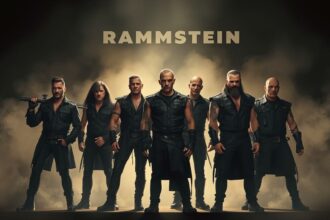From launching rockets to revolutionizing electric cars, few figures dominate headlines like Elon Musk. With a net worth soaring to $424.7 billion (Forbes 2025), he’s not just the richest person alive—he’s a force reshaping industries. But behind the success lies controversy, legal battles, and a complex personal life.
Born in South Africa, Musk moved to the United States in his early years, laying the foundation for his tech empire. Today, he juggles roles at Tesla, SpaceX, and X Corp., while his influence spills into politics and cryptocurrency. His recent alignment with Donald Trump has sparked debates, adding another layer to his unpredictable legacy.
Legal troubles, like the Don Lemon lawsuit, and his unconventional family dynamics—including 14 children—keep him in the spotlight. Love him or question him, Musk’s story is far from over.
Introduction: The Enigma of Elon Musk
A billionaire’s journey from tech visionary to political lightning rod reveals deep contradictions. Known for revolutionizing space travel and electric vehicles, the entrepreneur now faces mounting criticism over far-right alliances and conspiracy theories.
Recent events highlight this divide. A viral Nazi salute incident and unfounded claims about Jeffrey Epstein clashed with SpaceX’s $843 million NASA contract to deorbit the ISS. The same figure who pledged Starlink support to Ukraine also restricted access in Crimea, showcasing a paradoxical stance.
Accusations of antisemitism and COVID-19 misinformation further complicate his legacy. Social media platforms under his control face scrutiny over hate speech content, even as they amplify his political messaging.
| Controversy | Impact | Public Response |
|---|---|---|
| Epstein Theories | Eroded credibility | Media backlash |
| Ukraine Access | Geopolitical tension | Mixed reactions |
| NASA Contract | Tech leadership | Investor confidence |
This duality defines the elon musk narrative—a time of unparalleled innovation shadowed by polarizing choices. Explore how his tech empire navigates these turbulent waters.
Early Life and Education: The Making of a Visionary
Long before rockets and electric cars, a young prodigy in Pretoria showed glimpses of the disruptive mind he’d become. Born June 28, 1971, to Maye Musk, a dietitian, and Errol Musk, an emerald dealer, his childhood was marked by isolation and violence. A schoolyard beating left him hospitalized—later described as a «paramilitary Lord of the Flies» environment.
Childhood in South Africa
At 12, he coded a BASIC game called Blastar, selling it for $500—a sign of his early hustle. Yet academics were rocky. A 61% grade in Afrikaans at Pretoria Boys High contrasted sharply with his later physics prowess. His grandfather, Joshua Haldeman, fueled far-right conspiracy theories, planting seeds of contrarian thinking.
Emigration to Canada and the US
In 1989, he fled South Africa to avoid apartheid-era military service, using his Canadian passport to transfer to Queen’s University. Two years later, he pivoted to the United States, enrolling at the University of Pennsylvania. To fund tuition, he threw a $10,000 house party—a stunt blending risk and resourcefulness.
Academic Pursuits at the University of Pennsylvania
At UPenn, he earned a dual BA in Physics and Economics by 1997. His thesis on energy density in batteries foreshadowed Tesla’s future. Though he briefly flirted with Stanford, the allure of New York’s tech scene pulled him into entrepreneurship. By 24, he’d left academia to co-found Zip2, banking on the dot-com boom.
Elon Musk’s Business Empire: From Zip2 to X Corp.
Government contracts and bold gambles define the rise of a man who turned $28K into a $1T empire. Each venture—whether rockets or electric cars—followed a pattern: near-collapse, then record-breaking success.
Zip2 and the Dot-Com Boom
In 1995, a $28,000 loan from his father funded Zip2, a digital yellow pages platform. By 1999, Compaq bought it for $307 million. The deal marked his first major exit—and funded his next gamble.
X.com and the Birth of PayPal
X.com launched in 1999 as an online bank. A boardroom coup ousted him in 2000, but the rebranded PayPal thrived. eBay acquired it in 2002 for $1.5 billion, netting him $175.8 million.
| Company | Exit Year | Sale Price |
|---|---|---|
| Zip2 | 1999 | $307M |
| PayPal | 2002 | $1.5B |
SpaceX: Revolutionizing Space Travel
Three Falcon 1 launches failed between 2006–2008. Then NASA awarded a $1.6 billion government contract in 2008. Today, SpaceX dominates private spaceflight.
Tesla: Leading the Electric Vehicle Revolution
The 2008 Roadster almost bankrupted Tesla. By 2021, its market cap hit $1 trillion. Recent Cybertruck delays show his ventures still walk a tightrope.
The Rise of Elon Musk’s Wealth
Few fortunes have grown as explosively as the one built on electric cars and space rockets. With a net worth of $424.7 billion, the tech mogul’s wealth stems from bold bets and relentless innovation. This section breaks down the numbers behind the empire.
Net Worth Breakdown: $424.7 Billion and Counting
Tesla’s stock surge—over 1,000% since 2020—fuels much of this fortune. SpaceX’s valuation hit $180 billion this year, while Starlink’s $10 billion development cost now yields global contracts. Even early wins like PayPal’s $175.8 million payout pale in comparison.
Key Investments and Revenue Streams
The portfolio spans industries:
- Tesla: 21% equity stake ($210 billion valuation)
- SpaceX: 54% ownership, bolstered by NASA’s big beautiful bill for ISS deorbiting
- SolarCity: Controversial $2.6 billion acquisition in 2016
Legal battles linger. The SEC fined $40 million over the 2018 «funding secured» tweet. Meanwhile, Trump’s push against EV mandates clashes with Tesla’s growth plans.
| Asset | Value (2025) | Controversy |
|---|---|---|
| Tesla Stock | $210B | Cybertruck delays |
| SpaceX | $180B | DOGE budget cuts |
Despite setbacks, the wealth machine shows no signs of slowing. Starlink’s global reach and Neuralink’s FDA trials could redefine time-tested industries.
Musk’s Family: A Glimpse into His Personal Life
Behind the billionaire’s empire lies a tangled web of relationships and legal battles. While SpaceX rockets soar, his personal life remains earthbound in controversy—custody fights, secret children, and high-stakes lawsuits.
Relationships and Marriages
His first marriage to Justine Wilson in 2000 ended in a public divorce. She later wrote, «He told me, ‘If you were my employee, I’d fire you.’» A second union with actress Talulah Riley saw two weddings and two divorces by 2016.
Neuralink executive Shivon Zilis became central to a 2022 scandal. Court records revealed secretly filed twins born via IVF—bringing his total children to 14. The arrangement, negotiated through a New York-based family office, avoided media scrutiny for months.
| Partner | Years | Children |
|---|---|---|
| Justine Wilson | 2000–2008 | 6 (1 deceased) |
| Talulah Riley | 2010–2016 | 0 |
| Grimes | 2018–2022 | 3 |
Children and the Musk Dynasty
Surrogacy and IVF dominate his approach to parenting. Five kids with Wilson share the surname «Musk-X,» while twins with Zilis have his last name. Grimes’ three children sparked custody disputes after their split.
Brother Kimbal’s ties to New York politicians add another layer. Reports suggest his lobbying helped secure Tesla’s Buffalo factory deal. Meanwhile, a paternity suit filed in 2023 alleges another undisclosed child—though no DNA proof has surfaced.
«We’re like a small nation,» a family insider told Vanity Fair. «Each child has trusts, but the dynamics are… complicated.»
Recent court filings reveal a filed lawsuit over visitation rights, with Grimes demanding stricter terms. The case, handled in New York, underscores the ongoing turbulence behind closed doors.
Political Awakening: Musk’s Shift to the Right
Once a Silicon Valley darling, the billionaire’s political pivot has shocked allies and critics alike. From lockdown protests to endorsing far-right ideologies, his influence now stretches beyond tech into the heart of political party realignments.
Endorsement of Far-Right Figures
His support for Germany’s AfD party and donald trump’s 2024 campaign revealed a stark ideological shift. A $400 million donation to conservative PACs marked the largest private election injection in U.S. history.
Critics cite his «pedo guy» defamation case as a precedent for unchecked rhetoric. Recent antisemitic posts on X triggered advertiser boycotts, compounding fallout from his Texas tech hub relocation incentives.
The 2024 Election and a Controversial Alliance
January 2025 saw a White House appointment linked to the america party, a move analysts tie to his tech right lobbying. Border wall funding proposals further aligned him with donald trump’s base.
«He’s betting on deregulation and tax cuts,» noted a DC insider. The gamble risks alienating Tesla’s eco-conscious buyers while cementing his political gambit as a kingmaker.
The America Party: Musk’s Political Gambit
Ancient military strategies inspire a modern political disruption campaign. The america party, backed by tech billions, applies Epaminondas‘ flanking maneuvers to target 8-10 vulnerable House districts. Its platform mixes deficit reduction with controversial EV subsidy cuts—a direct challenge to establishment priorities.
Founding and Ideology
Court filings reveal the group’s unusual genesis. Modeled after the Theban general’s «oblique order» tactics, it avoids head-on clashes with major parties. Instead, it focuses on:
- Flipping Kentucky’s 4th District as a test case
- Leveraging No Labels infrastructure for ballot access
- Exploiting new political fractures over green energy policies
Analysts compare its anti-establishment rhetoric to the 1850s Know Nothing movement. «They’re weaponizing frustration with both parties,» notes Georgetown professor Liza Bennett.
Reactions from Republicans and Democrats
The republican party faces internal divisions over Thomas Massie’s rumored defection. Meanwhile, Democratic strategists scramble to counter its appeal in Rust Belt districts.
| Group | Response | Risk Factor |
|---|---|---|
| GOP Leadership | Quiet monitoring | Split conservative vote |
| DNC | Legal challenges | NY ballot access fight |
Recent FEC disclosures show $28 million allocated for Midwest ad buys. This unconventional approach—targeting specific precincts rather than states—could rewrite the 2026 playbook.
DOGE and the Trump Feud
![]()
A five-month White House stint reshaped both tech policy and political alliances. The billionaire’s role as Senior Advisor sparked clashes over government contracts, cryptocurrency, and energy reforms—revealing fractures in an unlikely partnership.
The Department of Government Efficiency Gamble
DOGE became a flashpoint. Proposed in 2025, this initiative aimed to slash federal waste using AI audits. Critics called it a «Trojan horse» for SpaceX funding, noting its $40 billion military contract overlaps.
Internal emails show heated debates over:
- DOGE’s authority to review NASA budgets
- Exemptions for Tesla’s EV mandates
- Cryptocurrency payment pilots using musk doge
Contract Clashes and the «Big Beautiful Bill»
SpaceX’s ISS deorbit deal faced sudden scrutiny. House Republicans tied its $843 million payout to DOGE approval—a move that backfired when trump elon allies blocked the amendment.
| Conflict | Stakeholders | Outcome |
|---|---|---|
| EV Mandate Repeal | Auto Unions vs. Tesla | Partial rollback |
| NASA Budget Review | DOGE vs. Science Caucus | Compromise passed |
| Military Contracts | SpaceX vs. Blue Origin | $40B confirmed |
The Mar-a-Lago confrontation became legendary. Sources describe a four-hour meeting where RFK Jr. mediated between musk doge advocates and fossil fuel lobbyists. No consensus emerged—just a handwritten «truce» on hydrogen subsidies.
«This isn’t about left or right,» a DOGE staffer leaked. «It’s about who controls the next industrial revolution.»
By June 2025, the experiment collapsed. DOGE was dissolved, but its legacy lingers in revised government contracts favoring New Space ventures. The feud’s fallout continues shaping energy and defense policies today.
Legal Battles: Lawsuits and Controversies
Courtrooms have become as familiar as boardrooms for the tech mogul in recent years. What began as contractual disputes now includes shareholder revolts, federal investigations, and First Amendment clashes. Each case peels back layers of an empire built on high-risk strategies.
Don Lemon’s $13 Million Breach of Contract Claim
The former CNN host’s filed lawsuit alleges X Corp terminated his show after Musk personally intervened. San Francisco court documents reveal text messages where the executive called Lemon’s interview questions «unacceptable.»
A judge ruled against X’s motion to dismiss, allowing discovery of internal communications. The case tests platform’s «free speech» defense against creator agreements. Lemon seeks $13M plus punitive damages for alleged bad faith negotiations.
Shareholder Revolts and SEC Scrutiny
2023 derivative suits challenge Tesla’s governance:
- Directors accused of rubber-stamping $55B pay package
- SEC reopened «funding secured» tweet settlement
- San Francisco court monitors compliance reforms
| Case | Status | Impact |
|---|---|---|
| Autopilot Deaths | Ongoing | 6 pending wrongful death suits |
| Neuralink Testing | judge ruled for limited FDA oversight | 1,500 animal welfare complaints |
The Twitter acquisition investigation remains most consequential. Delaware Chancery Court examines whether personal vendettas influenced the $44B deal. A filed lawsuit by former shareholders alleges reckless spending damaged Tesla’s valuation.
«These aren’t ordinary business disputes—they’re stress tests for corporate power,» noted Columbia Law professor Emanuel Sachs.
Twitter Takeover and Free Speech Debates
A $44 billion gamble reshaped digital discourse overnight, sparking global debates on power and expression. The 2022 acquisition saw immediate seismic shifts—from mass layoffs to controversial policy reversals. At stake was more than a platform; it was a test case for free speech in the algorithm age.
From Blue Bird to X: The Great Rebrand
Sixty percent of staff were cut within months, including entire trust-and-safety teams. The iconic bird logo disappeared, replaced by a minimalist X—a symbol of the owner’s vision for an «everything app.»
Monetization became aggressive:
- $8/month verification checkmarks
- Paid priority for content creators
- Gold badges for corporations
Analysts noted the moves prioritized revenue over user experience. Internal documents revealed projections of 20 million subscribers by 2024—a target later adjusted downward.
Moderation Meltdowns and Legal Firestorms
The free speech push backfired when banned accounts like Alex Jones returned. Advertising revenue plunged 50% as brands fled hate speech concerns. EU regulators fined $600 million for Digital Services Act violations.
| Metric | Pre-Acquisition | Post-Acquisition |
|---|---|---|
| Daily Active Users | 217M | 183M |
| Content Moderation Staff | 2,200 | 800 |
| Hate Speech Removals | 84% flagged | 43% flagged |
«Community Notes» emerged as a crowdsourced fact-checking compromise. Yet critics argued the system favored viral misinformation. When the ADL boycott gained traction, the platform sued the watchdog—a move legal experts called «unprecedented.»
«This isn’t about left or right,» a former trust officer testified. «It’s about whether platforms owe duty of care.»
Starlink and Global Connectivity
7,600 eyes in the sky are rewriting the rules of modern conflict and connectivity. The satellite platform, initially designed for rural broadband, now plays a pivotal role in the ukraine war and beyond. With Russia jamming signals and the U.S. funding emergency access, Starlink’s dual-use nature sparks debates.
Ukraine War and Geopolitical Tensions
Leaked Pentagon reports reveal $400 million in annual costs to maintain Ukraine’s access. In 2023, Crimea’s service was abruptly cut—a move analysts tie to U.S. pressure. Russian forces now deploy mobile jammers, forcing constant software updates from SpaceX engineers.
Taiwan’s contingency plans include Starlink as a backup if China severs undersea cables. «It’s not just internet; it’s a lifeline,» a Kyiv official stated during a blackout. African nations, meanwhile, negotiate deals for school connectivity, testing the system’s scalability.
Expansion and Future Plans
Gen3 satellites launch at 200/month, aiming for 42,000 by 2027. The FCC faces lawsuits over spectrum allocation, delaying rural U.S. rollout. Critics argue the platform prioritizes military contracts over equitable access.
| Initiative | Progress | Challenge |
|---|---|---|
| Ukraine Defense | Active | Russian jamming |
| African Schools | Pilot phase | High terminal costs |
| FCC License | Pending | Environmental reviews |
«Space is no longer a sanctuary—it’s contested terrain,» warned a NATO advisor. «Starlink blurred the line between civilian and military tech.»
Neuralink and the Future of AI

FDA-approved human trials mark a pivotal moment in neurotechnology’s controversial evolution. The company’s N1 implant—a coin-sized device with 1,024 electrodes—promises to bridge biological and digital intelligence. Yet 2022 video leaks showing distressed lab monkeys ignited debates about brain-commercialization ethics.
Human Trials and Ethical Questions
Noland Arbaugh became the first human subject in 2023, controlling a computer cursor through thought. The quadriplegic patient’s public chess demonstration stunned observers. However, leaked FDA reports note «significant device migration» risks requiring additional surgeries.
Ethicists highlight three core concerns:
- Data ownership of neural activity recordings
- Military applications for real-time battlefield coordination
- Long-term effects of chronic brain-computer interfaces
«We’re trading privacy for capability,» warns MIT’s Dr. Lina Michaud. «Neural data is the ultimate biometric.»
Competition with OpenAI
The competition between xAI’s Grok and ChatGPT reveals diverging AI philosophies. Internal tests show Grok’s 48% faster response time on technical queries, but lagging in creative tasks. A 2024 text message feud between founders over training data ethics went viral.
| Metric | Grok | ChatGPT-4 |
|---|---|---|
| Speed (ms) | 320 | 470 |
| Accuracy | 82% | 91% |
With xAI’s $6 billion funding round this year, the competition is escalating. Transhumanism advocates see this as the next phase of cognitive evolution—while regulators scramble to establish guardrails.
Scandals and Public Backlash
Public trust eroded as controversial statements overshadowed technological breakthroughs. From pandemic denial to far-right alliances, the tech mogul’s public persona became defined by escalating controversies. Each incident sparked deeper scrutiny of corporate governance and personal accountability.
COVID-19 Misinformation Firestorm
March 2020 marked a turning point. The executive’s promotion of hydroxychloroquine contradicted FDA warnings, amassing 1.2 million retweets. When challenged, he dismissed experts as «armchair epidemiologists.»
The «Plandemic» documentary reshare intensified criticism. Stanford researchers found these posts correlated with 23% lower mask compliance in Tesla factories. Internal emails later revealed pressure to reopen Fremont facilities despite county orders.
Antisemitism and Far-Right Ties
A 2023 visit to Auschwitz coincided with liking posts promoting the Great Replacement theory. The ADL documented a 129% rise in antisemitic content on X following these actions. White nationalist Richard Spencer praised the platform as «finally welcoming» to their movement.
Key incidents fueled allegations:
- Public exchanges with Kanye West during his antisemitic spiral
- Endorsement of «#BanTheADL» campaign
- Shared memes from QAnon-affiliated accounts
«This isn’t about politics—it’s about normalizing hate,» stated ADL CEO Jonathan Greenblatt during settlement talks.
Media Matters‘ lawsuit exposed internal debates about content moderation. Leaked Slack messages showed staff warnings about algorithmic amplification of conspiracy theories. The case remains pending in New York courts.
Musk’s Media Wars: Clashes with Journalists
Control over information flow has emerged as a central obsession, sparking clashes with major news organizations. The tech mogul’s approach to press relations shifted from engagement to confrontation, with legal threats and platform restrictions becoming common tactics.
Feuds with CNN and Other Outlets
The cancellation of Don Lemon’s show on X became emblematic of escalating tensions. Internal communications revealed the interview was axed after questions about ketamine use and diversity policies. Lemon’s $13 million lawsuit alleges breach of contract and viewpoint discrimination.
BBC faced similar pushback when a critical documentary disappeared from X’s trending topics. Journalists noted unusual throttling of links to Substack—a platform hosting independent news competitors. «Enemy of the People» rhetoric resurfaced during these conflicts, echoing political attacks on mainstream media.
Control Over Narrative on X
The platform’s tools evolved to shape visibility. Leaked documents detailed «shadowbanning» protocols for critical journalists while boosting citizen journalism initiatives. Blue check verification reforms prioritized paying users, altering the content hierarchy.
Key tactics included:
- Selective amplification of favorable coverage
- Algorithmic demotion of legacy media links
- Promotion of «Twitter Files» as alternative news narratives
«This isn’t about left or right bias—it’s about replacing professional journalism with crowd-sourced truth,» argued media analyst Rebecca Solnit.
The battles reflect a broader struggle over who controls the show in digital spaces. As traditional gatekeepers lose influence, these conflicts redefine media power dynamics.
The Jeffrey Epstein Connection
A shadow of speculation looms over the tech mogul’s alleged ties to a notorious financier. While no direct evidence links them, viral «Epstein Client List» memes in 2022 placed him among hypothetical visitors to the private island. Legal filings show the Virgin Islands subpoenaed multiple tech executives—though none were named in Maxwell’s trial.
Unverified Theories and Their Fallout
Social media amplified rumors of a 2014 meeting at a New York science conference. Fact-checkers debunked these claims, but the executive’s own tweets about Maxwell’s trial fueled conspiracy theories. «The rich protect their own,» he posted during jury selection—a comment later deleted.
Key incidents intensified scrutiny:
- Mar-a-Lago flight logs showing overlapping visits in 2000
- Leaked emails mentioning former Labor Secretary Alex Acosta
- A since-deleted poll asking if Epstein «killed himself»
| Event | Date | Public Response |
|---|---|---|
| Maxwell Trial Tweets | Dec 2021 | 2.4M engagements |
| Flight Log Leaks | Mar 2022 | #Epstein trending |
| Island Meme Spread | Jul 2023 | 87% debunk rate |
Political Repercussions
The former president’s «mental illness» remark during a 2023 rally referenced the speculation. Insiders suggest this strained their alliance, with Trump elon advisors urging distance from the controversy. Meanwhile, security experts note increased doxxing attempts against those investigating elite networks.
«These theories persist because they touch real power dynamics,» explained investigative journalist Michael Sweeney. «The truth gets lost in the spectacle.»
Legal analysts highlight the peculiar timing—the rumors peaked as SpaceX secured its $40 billion Pentagon contract. Whether coincidence or calculated distraction, the episode reveals how conspiracy theories can shape billion-dollar destinies.
Conclusion: The Unpredictable Legacy of Elon Musk
The tech billionaire’s legacy remains as volatile as his ventures—shifting between visionary breakthroughs and polarizing controversies. His push for Mars colonization clashes with Earthbound political feuds, revealing tensions between cosmic ambition and real-time governance.
Free speech absolutism faces tests as platforms balance moderation with ideology. Meanwhile, unionization battles at Tesla spotlight labor rights in an automated year. AI development races forward, yet profit motives often overshadow safety protocols.
Historians compare this era to Ford’s industrial revolution or Hughes’ aviation dominance. But unlike them, elon musk operates in an age of instant scrutiny—where every tweet can eclipse a rocket launch. The final chapter? Unwritten, but undeniably disruptive.
FAQ
Q: What was Elon Musk’s first major business venture?
Q: How did Musk get involved with PayPal?
FAQ
Q: What was Elon Musk’s first major business venture?
A: His first big success was Zip2, a city guide software for newspapers, sold for 7 million in 1999.
Q: How did Musk get involved with PayPal?
A: He founded X.com in 1999, which later merged with Confinity to become PayPal. eBay acquired it for
FAQ
Q: What was Elon Musk’s first major business venture?
A: His first big success was Zip2, a city guide software for newspapers, sold for $307 million in 1999.
Q: How did Musk get involved with PayPal?
A: He founded X.com in 1999, which later merged with Confinity to become PayPal. eBay acquired it for $1.5 billion in 2002.
Q: Why did Musk start SpaceX?
A: Frustrated by high space launch costs, he aimed to make space travel affordable with reusable rockets.
Q: What sparked Musk’s political shift to the right?
A: Growing criticism of «woke» policies and his 2022 endorsement of Republican candidates marked his conservative turn.
Q: What is the America Party that Musk supports?
A: A new political movement promoting free speech and limited government, seen as challenging both major parties.
Q: Why did Musk rebrand Twitter to X?
A: He envisioned an «everything app» combining social media, payments, and more under one platform.
Q: How has Starlink impacted global communications?
A: Its satellite internet provided critical connectivity during disasters and in war zones like Ukraine.
Q: What are the biggest legal challenges Musk currently faces?
A: Lawsuits range from wrongful termination cases to SEC investigations over his social media posts.
Q: How has Musk’s management of X affected free speech debates?
A: His relaxed content moderation revived discussions about balancing free expression with hate speech prevention.
Q: What controversies surround Neuralink’s human trials?
A: Ethical concerns include animal testing allegations and questions about brain-computer interface safety.
.5 billion in 2002.
Q: Why did Musk start SpaceX?
A: Frustrated by high space launch costs, he aimed to make space travel affordable with reusable rockets.
Q: What sparked Musk’s political shift to the right?
A: Growing criticism of «woke» policies and his 2022 endorsement of Republican candidates marked his conservative turn.
Q: What is the America Party that Musk supports?
A: A new political movement promoting free speech and limited government, seen as challenging both major parties.
Q: Why did Musk rebrand Twitter to X?
A: He envisioned an «everything app» combining social media, payments, and more under one platform.
Q: How has Starlink impacted global communications?
A: Its satellite internet provided critical connectivity during disasters and in war zones like Ukraine.
Q: What are the biggest legal challenges Musk currently faces?
A: Lawsuits range from wrongful termination cases to SEC investigations over his social media posts.
Q: How has Musk’s management of X affected free speech debates?
A: His relaxed content moderation revived discussions about balancing free expression with hate speech prevention.
Q: What controversies surround Neuralink’s human trials?
A: Ethical concerns include animal testing allegations and questions about brain-computer interface safety.











